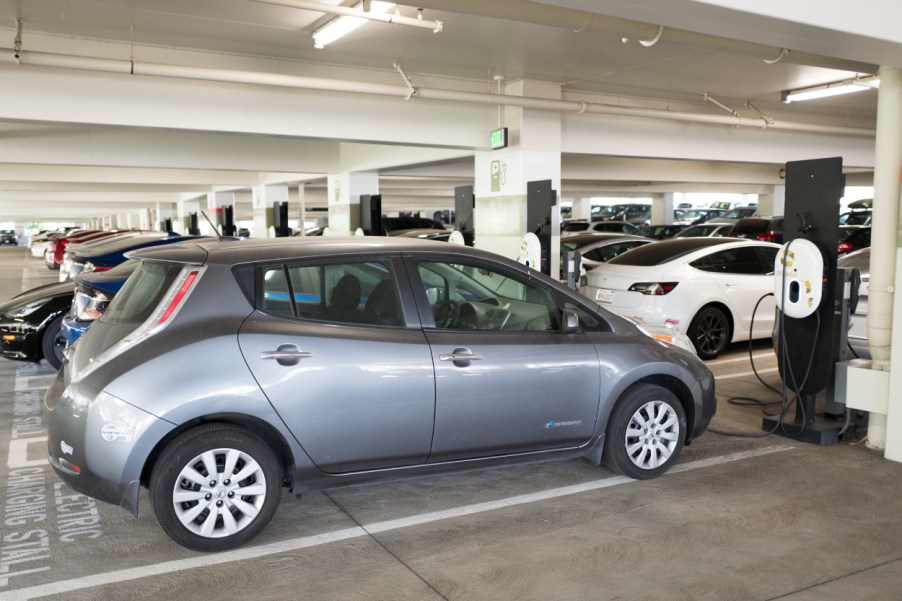
Nissan Is Trying to Compete With BMW’s EV New Technology
While Tesla may be what everyone thinks of in terms of EVs, traditional automakers are already competing with each other in the electric car market.
This is the case with Nissan and BMW, who are both working on making its EVs more advanced. Here’s a look at how Nissan is trying to compete with BMW’s wireless charging technology.
BMW sets the pace for EVs with wireless charging tech
Just like how phones gradually went from being connected to a landline to being wireless, charging technology is also gradually becoming wireless.
When it comes to hybrids and EVs, the wireless charging technology of the future isn’t just the ability to charge a smartphone wirelessly, it’s also the ability to charge the car’s battery wirelessly.
BMW isn’t the only automaker pursuing this idea, but BMW was the first one to roll it out in America. BMW launched this pilot wireless charging program in late 2019, and this pilot program only involved 200 cars. The cars were the BMW 530e, and the only people who could sign up for this program were folks living in California.
The way BMW’s wireless charging works is simple. A CarPad is attached to the belly of the car, and a GroundPad is installed into the garage floor. The driver will have to be precise when parking their car, but BMW does have a system in place to help with that.
Once the CarPad is aligned with the GroundPad, the driver just presses a button and their car will start recharging. This wireless charger will also recharge at about the same pace as a Level 2 home charger will.
Nissan is innovating further on wireless charging tech
Recently, Nissan announced its wireless charging system, and when it comes to the details, Nissan’s wireless charging system is relatively similar to BMW’s.
Both systems are using a process called inductive charging in order to get the electricity from the grid to go into the car’s batteries. As a result, when it comes to things like charging speed or charging efficiency, Nissan’s wireless charging tech should be similar to BMW’s or anyone else’s.
That being said, Nissan isn’t just content with doing the same thing that BMW is. Like BMW’s system, Nissan’s wireless charging system will have to have similar GroundPads and CarPads, however, Nissan wants the whole charging process to be even easier.
Since aligning those two pads will matter a lot, Nissan thought that it would be a great idea to add a computer to the mix. Nissan’s system combines the car’s wireless charging system with Nissan’s “Advanced Parking System.”
When the two are working together, drivers can easily and effortlessly park their Nissan EV without worrying too much about aligning the charging pads since the steering will be controlled by the computer.
Why wireless charging will be the future
Like Nissan wrote, one of the best perks about wireless charging is that it’s extremely convenient since owners won’t have to mess around with charging cables.
Wireless charging tech won’t be limited to just EV owners and their homes either, and it’s entirely possible that charging stations will be mostly or entirely wireless in the future.
As such, in the future, it would be possible for someone to park their EV at a charging station, play some video games on their car’s touch screen for an hour or two, and then drive off when their car’s done recharging.
This means that, with wireless charging, EV owners may be able to recharge their car without even getting out of the car. That said, wireless charging is still a futuristic technology, and it will be a while before Nissan, BMW, or Tesla starts rolling it out en masse.



